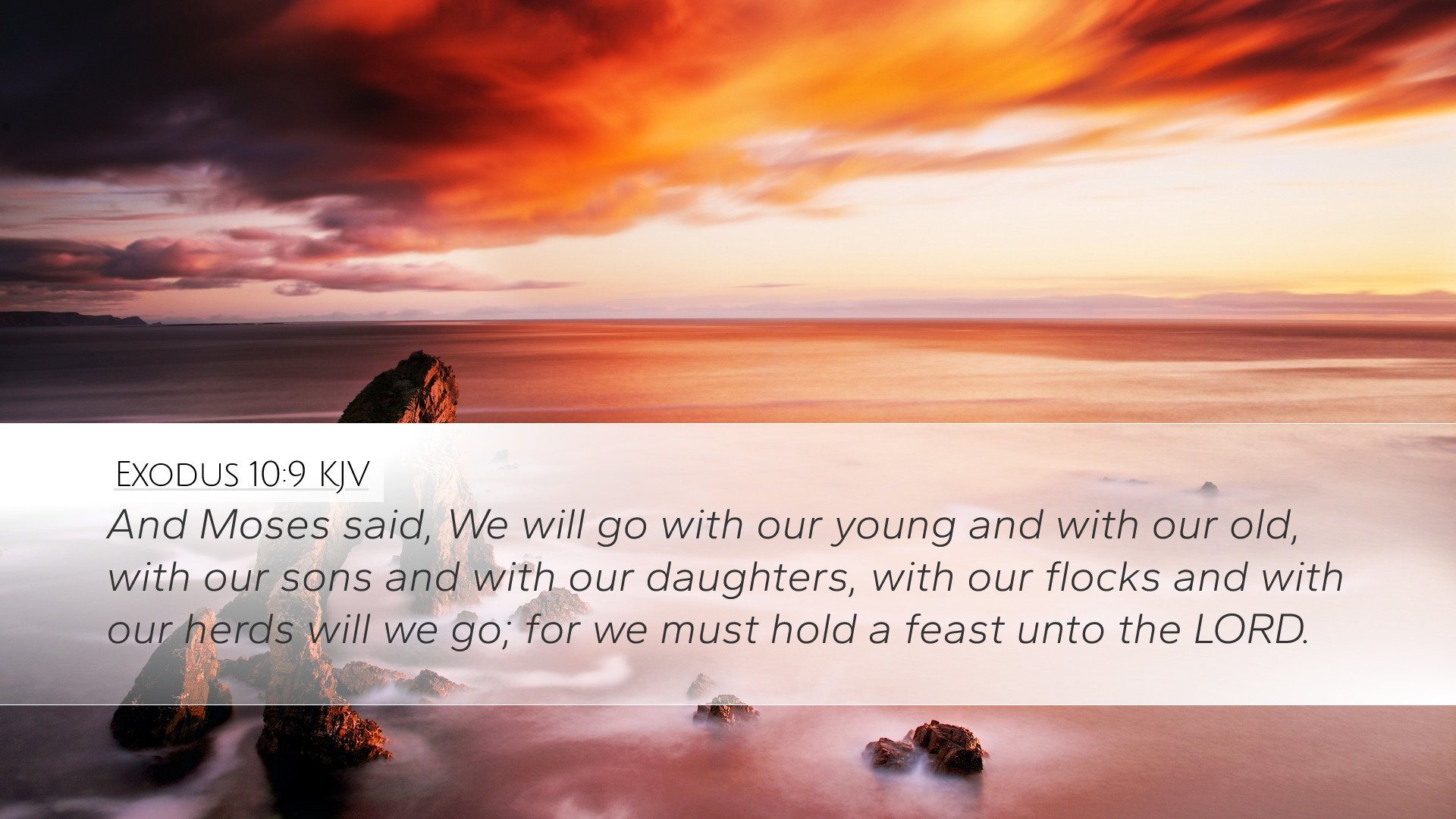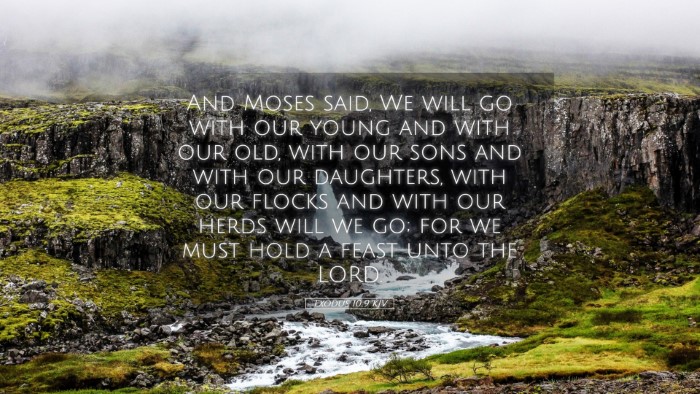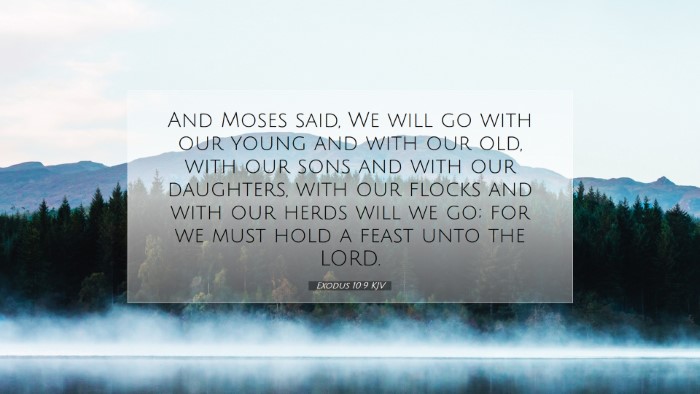Commentary on Exodus 10:9
Verse: "And Moses said, We will go with our young and with our old, with our sons and with our daughters, with our flocks and with our herds will we go; for we must hold a feast unto the LORD." (Exodus 10:9)
Introduction
This verse encapsulates the resolve of Moses in the face of Pharaoh's demands. It illustrates a pivotal moment in the Exodus narrative, highlighting the unwavering commitment to worship amid oppression. The insights drawn from esteemed public domain commentaries—Matthew Henry, Albert Barnes, and Adam Clarke—provide depth to the understanding of this passage for pastors, theologians, and students of the Bible.
Theological Implications
The insistence of Moses to take everyone—including the young and the old—demonstrates the inclusive nature of worship that God desires. This aspect reflects a significant theological truth: God's intention is for all members of the covenant community to participate in His worship and to witness His mighty acts.
Matthew Henry's Perspective
Matthew Henry emphasizes the boldness of Moses in demanding freedom for the whole Israelite community. He notes that Moses's declaration embodies the commitment of the Israelites to preserve their identity and religious practices despite Pharaoh's restrictive policies. According to Henry, this demand reflects the necessity of gathered worship and the integral role of families within the faith community.
Albert Barnes' Analysis
Albert Barnes approaches this verse by examining the dynamics of leadership exhibited by Moses. He points out that the request to take everyone, including possessions, signifies the totality of their liberation. Barnes suggests that this moment reveals God's instruction for their collective worship, which is to be comprehensive and unreserved. He also underlines that all ages were to partake, reinforcing the importance of passing faith from one generation to the next.
Adam Clarke's Commentary
Adam Clarke provides further insight into the verse by highlighting the social and familial structure of the Israelites. He interprets Moses's proclamation as an assertion of the right to worship and serve the Lord completely unrestricted. Clarke underscores that the phrase "hold a feast" points to a significant communal celebration that is central to Israel's identity as God's chosen people. Clarke's exegesis resonates with the theme of collective responsibility in worship and spirituality.
Historical Context
Understanding the historical backdrop of this verse is crucial. The Israelites were in bondage in Egypt, facing Pharaoh's oppressive rule. The denial of their right to worship God was emblematic of the broader struggle for religious freedom. Moses's insistence on taking everyone speaks to the desire for a complete deliverance from slavery—not just physical freedom but also the freedom to worship God fully without restrictions.
Practical Applications
For contemporary believers and church leaders, Exodus 10:9 serves as a call to action regarding worship. Here are some practical applications derived from the verse and the associated commentaries:
- Embrace Inclusive Worship: As Moses demonstrated, worship should be all-encompassing, inviting every member of the church community, regardless of age or status.
- Prioritize Collective Identity: The emphasis on family and communal worship underscores the importance of nurturing faith across generations.
- Advocate for Religious Freedom: The historical struggle of the Israelites serves as a reminder to advocate for the right to worship freely in our contemporary context.
- Celebrate Gathered Worship: Recognizing the importance of ritual and celebration, churches should prioritize opportunities for communal feasts and gatherings in worship.
Conclusion
In summary, Exodus 10:9 is a focal point in the narrative of the Exodus, illustrating the determination of Moses and the Israelites to worship God freely. The rich insights from Matthew Henry, Albert Barnes, and Adam Clarke provide a multi-faceted understanding of this powerful declaration. As believers today reflect on this verse, it is essential to recognize the call to inclusive worship, the significance of family in faith, and the profound implications for religious liberty.


